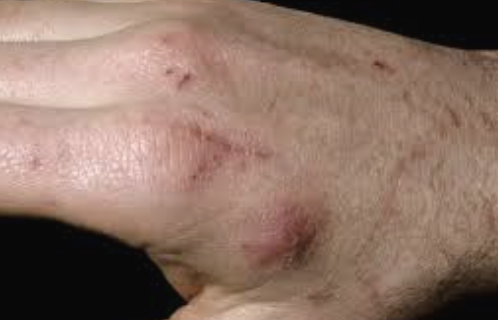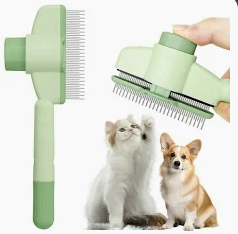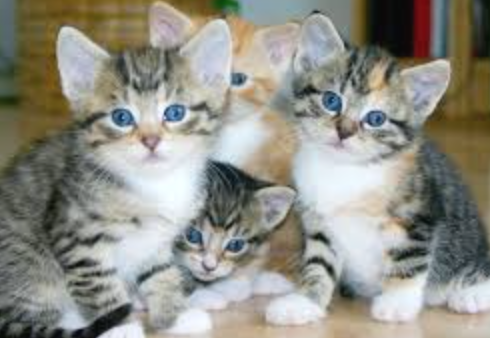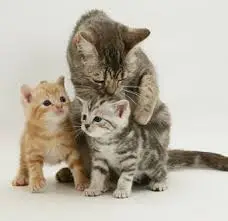Last Updated on 06/16/2025 by Kimberly
Yes, kittens die from fleas especially before they can be treated with topical flea medications because of their young age and low weight. Kittens are incredibly delicate, and a major threat looming over them can be something as tiny as a flea. These little pests might seem like just a nuisance, but they can actually pose some serious health risks for kittens. The danger comes when the infestation becomes severe. Fleas feed on blood, so when they’re in large numbers, they can lead to anemia, which is a condition that involves a significant loss of red blood cells. This can be devastating for a small kitten with limited reserves.
Fleas are also carriers of various diseases and parasites. Bartonella, commonly known as cat scratch disease, is one such infection which can be transmitted through flea bites. For kittens with developing immune systems, this can mean real trouble. And let’s not forget about tapeworm transmission, another issue connected to fleas that can wreak havoc on their fragile health.

Spotting a flea problem early on is crucial. Common symptoms such as excessive scratching, visible fleas or flea dirt on their skin, and a kitten appearing lethargic or pale could signal something severe. When these signs show up, it’s time to act fast and seek advice from a vet.
Statistical evidence illustrates this, with young kittens sometimes succumbing to heavy infestations if left untreated. The risk is real, and awareness is the first step to prevention. Knowing the signs and acting promptly can make a world of difference in safeguarding their health. It’s about staying vigilant and understanding that fleas aren’t just a minor inconvenience—they’re a pressing health hazard for kittens.
Flea Prevention Without Medication: How to Protect Vulnerable Kittens
Protecting kittens from fleas, before they are old enough for traditional treatments, is a challenge. But, it’s doable with the right approach. Kittens are sensitive to many chemical products, so finding natural alternatives is key.
One of the simple yet effective methods is regular combing. Using a fine-toothed flea comb, you can physically remove fleas from their fur. This hands-on approach helps you keep track of the flea situation as your kitten grows.
Bathing can also play a role in flea prevention, especially when you use safe products. Look for those mild, kitten-friendly soaps made specifically to remove fleas without introducing harmful chemicals. Warm water and a gentle touch can soothe the kitten while managing those pests.
Beyond direct treatment, keeping the environment less welcoming to fleas is essential. Flea traps placed around your home can help in capturing the fleas as they hop around. Additionally, keeping your space clean by vacuuming thoroughly will help manage flea populations.
Kitten-specific flea collars can offer some protection too. They need to be designed to be safe for the kitten’s delicate skin and should be used cautiously, always checking for any irritation or discomfort. Ensuring the collar fits correctly without being too tight is critical.
Taking these steps doesn’t just keep fleas in check; it provides peace of mind as your kitten enjoys a more comfortable start to life. It’s about creating a healthy environment until they grow enough to handle more robust flea control methods.
Maintaining a Flea-Free Environment: Precautions to Prevent Fleas in Your Home
Keeping your home and surroundings clean is a big part of stopping fleas before they become a problem. Regular cleaning, including vacuuming carpets and upholstered furniture, removes many of those pesky flea eggs and larvae. It’s like giving your house a fresh start, disrupting the flea life cycle before they can settle in.
Don’t underestimate the power of hot water when it comes to cleaning pet bedding. Washing pet beds in hot water is a simple yet effective way to kill any lingering fleas or eggs. Just remember to do it frequently; it’s an ongoing battle that needs a little dedication.
The garden or yard can be a haven for fleas if not managed properly. Keeping lawns mowed short and trimming back dense foliage reduces the habitat areas where fleas like to thrive. If your yard tends to attract wildlife, it’s wise to keep them out as they can be carriers of fleas too.
Treating other household pets is another key step. All pets in the home should remain protected with appropriate treatments, as they can become a flea reservoir. Managing fleas on your other pets reduces the risk of them spreading to your vulnerable kitten. It all begins with a plan and sticking to it, ensuring that both your indoor and outdoor spaces contribute to a safe, flea-free environment.
Safe Usage and Timing: When Can Kittens Use a Flea Medication?
Timing is everything when it comes to using flea medications on kittens. It’s crucial to follow specific guidelines regarding their age and weight before considering flea treatments. Most flea medications are only safe once kittens reach a certain age, often around 8 weeks, and achieve a certain weight threshold, usually around 2 pounds.
Understanding the variety of flea medications available is essential. These range from topical treatments to oral options, each having specific age and weight restrictions. Topicals can be easier for younger kittens, but choosing a product designed explicitly for kittens is important to avoid any adverse reactions.
Signs that a kitten might be ready for flea medication include reaching the appropriate age and weight while maintaining good overall health. Always perform a thorough check with the veterinarian to confirm these milestones. The vet’s guidance ensures you’re choosing the safest option for your furry friend.
Consulting your vet isn’t just a formality but a necessity. Your veterinarian can provide the best advice tailored to your specific kitten’s needs. They might suggest a specific type of flea medication suited to any special considerations your kitten might have.
Navigating the sea of flea control products can be daunting, but with the right information and a little expert help, your kitten can safely move towards using flea medications without a hitch. It’s all about ensuring they hit their developmental targets before taking that step.
In Conclusion To Can Kittens Die From Fleas:
I hope the. information in this article will help you treat your kittens for fleas, safely. If you have any questions about the information in this article, or would like to share your own flea treatment used for kittens, please leave a comment below. We will do our best to help you with questions and I’m sure others would really appreciate any advice you may have to help them deal with fleas on their kittens.
Thank you for visiting Fleas B Gone 🙂






